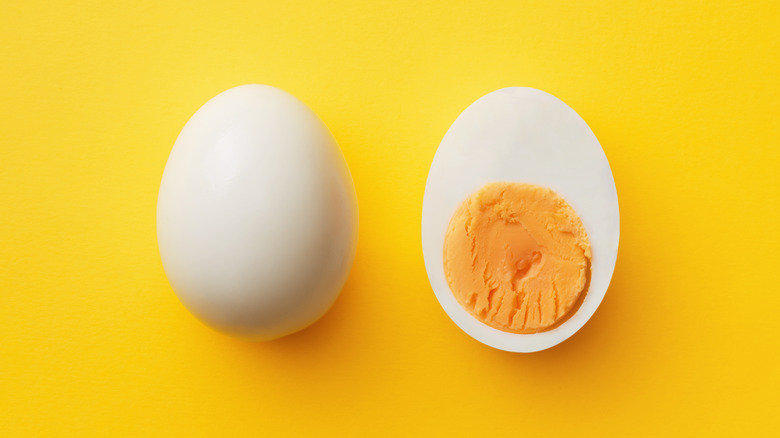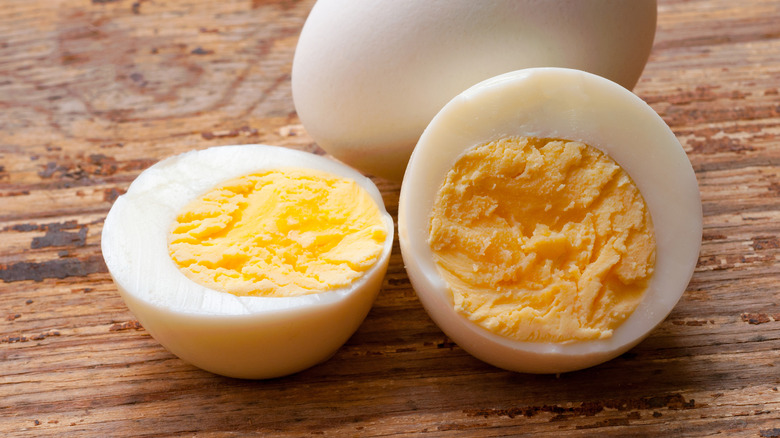You Should Start Eating More Hard-Boiled Eggs. Here's Why
Eggs are a magical food. They can be prepared in a number of different ways — scrambled, sunny-side-up, poached, hard-boiled, over easy, whipped up as an omelet, baked into a quiche, basted, the list goes on. Eggs are rich in proteins and other essential vitamins and nutrients (per Healthline). They can be eaten during any time of the day, whether for breakfast, lunch, dinner, or even dessert. They are the main component of several baked goods, too, acting as a leavening agent and binder. They are even used in some cocktails, believe it or not, including the ever-famous gin fizz.
One of the simplest (and healthiest) ways to prepare eggs is by hard-boiling them. Hard-boiled eggs, according to nutritionists, offer a rare beneficial nutrient that many other foods lack. After all, as Healthline notes, eggs are often regarded as "nature's multivitamin." Let's crack open the reasons why you should be munching on more hard-boiled eggs in the name of science.
Why are hard-boiled eggs so good for you?
Whether you prefer them sprinkled with salt and pepper, doused in hot sauce, or chopped into bite-sized crumbles and scattered over a salad, there's really no wrong way to eat hard-boiled eggs. And it turns out that hard-boiled eggs, unlike their dozens of cousins, contain a lesser-known nutrient called choline, according to Eat This, Not That!
Choline is often grouped with the B-complex vitamins and is a necessary nutrient for various bodily functions and processes. For example, choline plays a key role in DNA synthesis during cell creation. It also helps produce acetylcholine, a neurotransmitter that helps regulate our mood, improve memory, manage muscle control, and handle other critical tasks within our nervous systems (via WebMD). It's no wonder why hard-boiled eggs are highly considered an excellent "brain food."
Choline also supports the removal of LDL cholesterol (the "bad" kind) by creating a substance that breaks down cholesterol held in the liver. According to the United States Department of Agriculture's FoodData Central, a large hard-boiled egg contains 147 milligrams of choline. Low choline intake has been connected to liver and heart disease, as well as some neurological disorders, according to Healthline.

